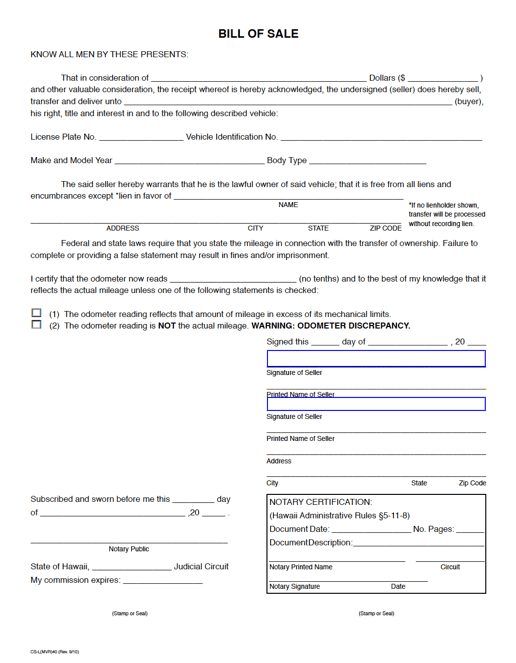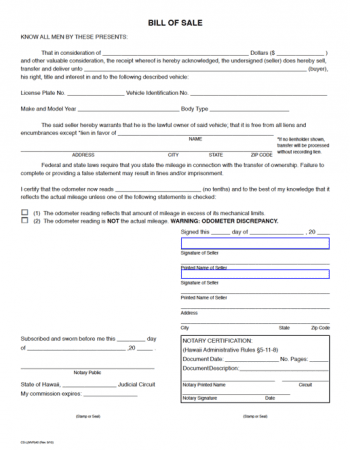Hawaii Bill of Sale Forms (5)
A Hawaii bill of sale form contains information about exchanging goods from one party to another. Each type of form has an essential but unique purpose. For example, a motor vehicle bill of sale requests the license plate number, vehicle identification number (VIN), and odometer reading of a car. A boat bill of sale, on the other hand, contains fillable fields for the hull identification number (HIN), motor information, and trailer details. Other documents, such as those for transferring a firearm or generic object, include information specific to the item.
Summary
|
Types (5)
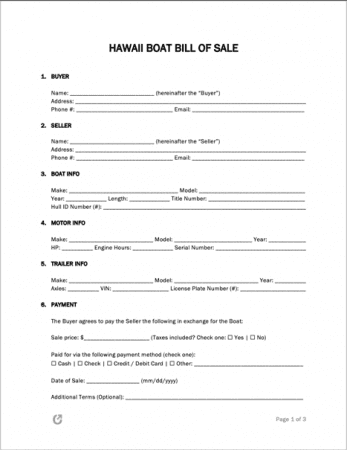 Boat Bill of Sale – A form that proves that the buyer acquired ownership of a vessel and that the seller no longer has possession of it.
Boat Bill of Sale – A form that proves that the buyer acquired ownership of a vessel and that the seller no longer has possession of it.
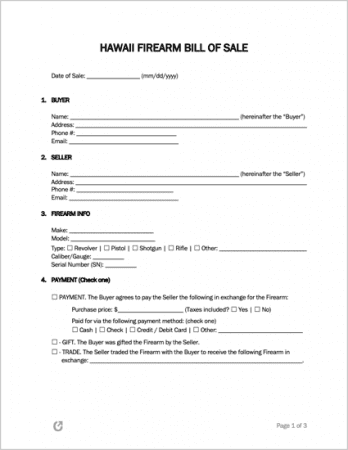 Firearm Bill of Sale – Used when one party purchases a rifle, handgun, shotgun, or any other gun from another.
Firearm Bill of Sale – Used when one party purchases a rifle, handgun, shotgun, or any other gun from another.
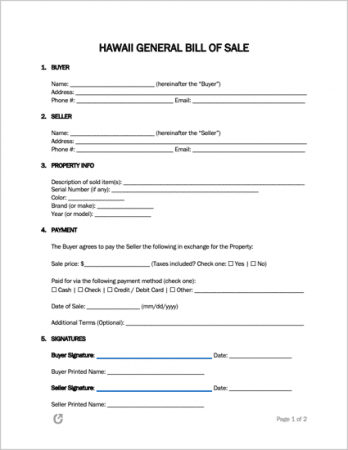 General Bill of Sale – Provides the details of a transaction between two (2) entities when the item is non-specific.
General Bill of Sale – Provides the details of a transaction between two (2) entities when the item is non-specific.
Download: PDF |
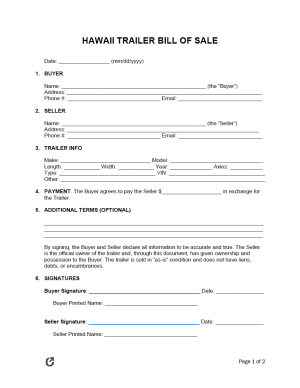 Trailer Bill of Sale – For the documenting of a utility trailer commerce.
Trailer Bill of Sale – For the documenting of a utility trailer commerce.
Signing Requirements
| Bill of Sale Type | Buyer Signature | Seller Signature | Notarization |
| Boat | Required | Required | Not required |
| Firearm | Required | Required | Not required |
| General (others) | Required | Required | Not required |
| Motor Vehicle | Not required | Required | Required |
| Trailer | Required | Required | Not required |
What is a Hawaii Bill of Sale?
A Hawaii bill of sale serves as a guide to the proceedings between a buyer and seller. It encompasses the minute details of the transaction, such as the sales price, tax amounts, and the condition of the item sold. Neither party can back out of the deal once signed, meaning the buyer cannot request an exchange, and the seller cannot ask for the item back. Instead, the new owner would need to complete and sign a separate bill of sale form to carry out the reassignment of ownership.
A bill of sale differs from a purchase order because it requires the buyer to pay the seller immediately. The buyer cannot make installments, pay in advance, or provide reimbursement later. In addition, businesses and clients often use purchase orders when ordering a list of goods from a company. On the other hand, private sellers and buyers utilize bill of sale forms, which generally involve one (1) used item but can include more depending on the agreed-upon terms.
Registration Forms: Boats
|
Registration Requirements: Vehicles
|
Registration Requirements: Trailers
|
